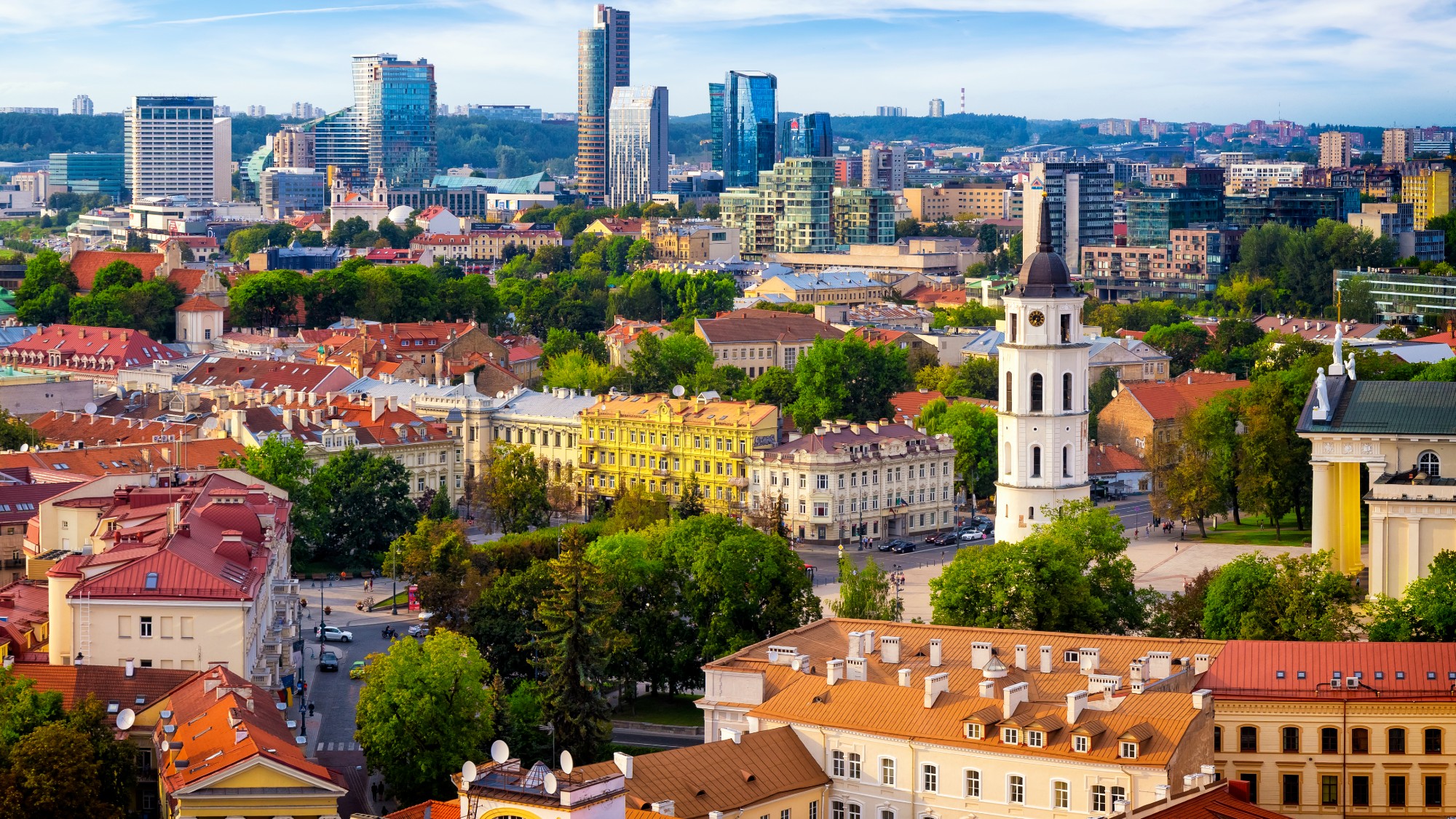From Panopticon to pleasure dome: Dutch prisons transformed
The Netherlands is turning its domed prisons of 'terror' into vibrant community spaces

A free daily email with the biggest news stories of the day – and the best features from TheWeek.com
You are now subscribed
Your newsletter sign-up was successful
You might assume that the 40 metre-high dome in the Dutch city of Haarlem is a religious building, said The Guardian – "until you notice the bars covering its 230 windows".
The Haarlem Koepelgevangenis ("dome prison") is just one of three so-called panopticons in the Netherlands: circular prisons with a central watch tower, built in the 19th century and designed to oppress inmates. All three have been closed in the past decade, as part of the country's drive to reduce its prison population, and are being "repurposed".
Psychological terror
The panopticon, first envisioned by British philosopher and social reformer Jeremy Bentham in the 1700s, is a circular structure with a domed roof and cells arranged in tiers on the circumference. From the centre, guards can observe all the inmates.
The Week
Escape your echo chamber. Get the facts behind the news, plus analysis from multiple perspectives.

Sign up for The Week's Free Newsletters
From our morning news briefing to a weekly Good News Newsletter, get the best of The Week delivered directly to your inbox.
From our morning news briefing to a weekly Good News Newsletter, get the best of The Week delivered directly to your inbox.
The design "aimed to instill psychological terror" in prisoners, said Semafor. The giant circle of cells, with the guard tower in the centre, "made prisoners feel constantly watched", whether they were or not.
Bentham himself saw the panopticon as "a new mode of obtaining power of mind over mind", and believed this "simple idea in architecture" could reform morals and improve health. He thought the design would work in other institutional settings, including schools, hospitals and factories.
The idea was that constant central inspection would "cause the prisoners to learn to love their work", Tim Causer, a principal research fellow at UCL's Bentham Project, told The Guardian. "But the psychological terror of thinking you're being watched at all times, I imagine, would never leave you."
No panopticons were ever built in the UK. But the Netherlands emerged as the "unwitting 'heartland' of panopticon design", said The Guardian. The three structures in Haarlem, Breda and Arnhem were designed in the 1880s by Dutch architect Johan Frederik Metzelaar and his son Willem Cornelis, who "praised Bentham's design for restricting interactions between prisoners, who were in solitary confinement for 23 hours a day".
A free daily email with the biggest news stories of the day – and the best features from TheWeek.com
In the 1970s, the French philosopher Michel Foucault criticised the panopticon as inducing in prisoners "a state of conscious and permanent visibility that assures the automatic functioning of power". In his 1975 book "Discipline and Punish", he used the panopticon as an example of how societies used discipline to oppress citizens.
Cultural hub
Koepelgevangenis Haarlem, opened in 1899, finally closed to inmates in 2016. The city then briefly used the prison as a shelter space for Syrian refugees, while the government attempted to sell it. But the "bleak design, dark atmosphere and staggering heating costs" made the building "unappealing", said The Guardian.
In 2022, however, following a "grassroots initiative led by the local population", it reopened as a cultural hub and community space. Nearly all the cells are rented; there is a "podcast studio, art school ateliers and gallery spaces", with a cinema bar and a café on the ground floor. The refurbishment has "generated hundreds of jobs", and up to 1,500 people visit the building every day.
Amazon rents a space on the third floor, where cells have been converted into office spaces. The Amazon Web Service logo is "plastered just above the cell numbers", said Business Insider. Many social media users "noted the irony" of Amazon renting an office in a former prison, given the "widespread reporting" of allegations that Amazon warehouse workers and delivery drivers are "overworked, oversurveilled and underpaid".
The Haarlem site also includes student accommodation and social housing, said Positive News, "answering a national shortage of both".
Arnhem's panopticon is currently undergoing reconstruction to turn it into an event space and hotel, and Breda's domed prison is set to reopen in 2028 as an exhibition space for audio-visual projects.
They are among more than 20 Dutch prisons to have closed in the past decade, as the country's prison population has fallen by more than 40% over the past 20 years. The incarceration rate per capita in the Netherlands is now half that of the UK, and there are "far fewer" repeat offenders. "At times, the Netherlands has even resorted to importing convicts from abroad to fill its empty cells and keep some prisons open."
Harriet Marsden is a senior staff writer and podcast panellist for The Week, covering world news and writing the weekly Global Digest newsletter. Before joining the site in 2023, she was a freelance journalist for seven years, working for The Guardian, The Times and The Independent among others, and regularly appearing on radio shows. In 2021, she was awarded the “journalist-at-large” fellowship by the Local Trust charity, and spent a year travelling independently to some of England’s most deprived areas to write about community activism. She has a master’s in international journalism from City University, and has also worked in Bolivia, Colombia and Spain.
-
 How the FCC’s ‘equal time’ rule works
How the FCC’s ‘equal time’ rule worksIn the Spotlight The law is at the heart of the Colbert-CBS conflict
-
 What is the endgame in the DHS shutdown?
What is the endgame in the DHS shutdown?Today’s Big Question Democrats want to rein in ICE’s immigration crackdown
-
 ‘Poor time management isn’t just an inconvenience’
‘Poor time management isn’t just an inconvenience’Instant Opinion Opinion, comment and editorials of the day
-
 The 8 best superhero movies of all time
The 8 best superhero movies of all timethe week recommends A genre that now dominates studio filmmaking once struggled to get anyone to take it seriously
-
 Josh D’Amaro: the theme park guru taking over Disney
Josh D’Amaro: the theme park guru taking over DisneyIn the Spotlight D’Amaro has worked for the Mouse House for 27 years
-
 Exploring Vilnius, the green-minded Lithuanian capital with endless festivals, vibrant history and a whole lot of pink soup
Exploring Vilnius, the green-minded Lithuanian capital with endless festivals, vibrant history and a whole lot of pink soupThe Week Recommends The city offers the best of a European capital
-
 The best fan fiction that went mainstream
The best fan fiction that went mainstreamThe Week Recommends Fan fiction websites are a treasure trove of future darlings of publishing
-
 In Okinawa, experience the more tranquil side of Japan
In Okinawa, experience the more tranquil side of JapanThe Week Recommends Find serenity on land and in the sea
-
 Golden Globes affirm ‘One Battle,’ boost ‘Hamnet’
Golden Globes affirm ‘One Battle,’ boost ‘Hamnet’Speed Read Comedian Nikki Glaser hosted the ceremony
-
 ‘One Battle After Another’ wins Critics Choice honors
‘One Battle After Another’ wins Critics Choice honorsSpeed Read Paul Thomas Anderson’s latest film, which stars Leonardo DiCaprio, won best picture at the 31st Critics Choice Awards
-
 The best alcohol-free alternatives for Dry January
The best alcohol-free alternatives for Dry JanuaryThe Week Recommends Whether emerging from a boozy Christmas, or seeking a change in 2026, here are some of the best non-alcoholic beers, wines and spirits to enjoy